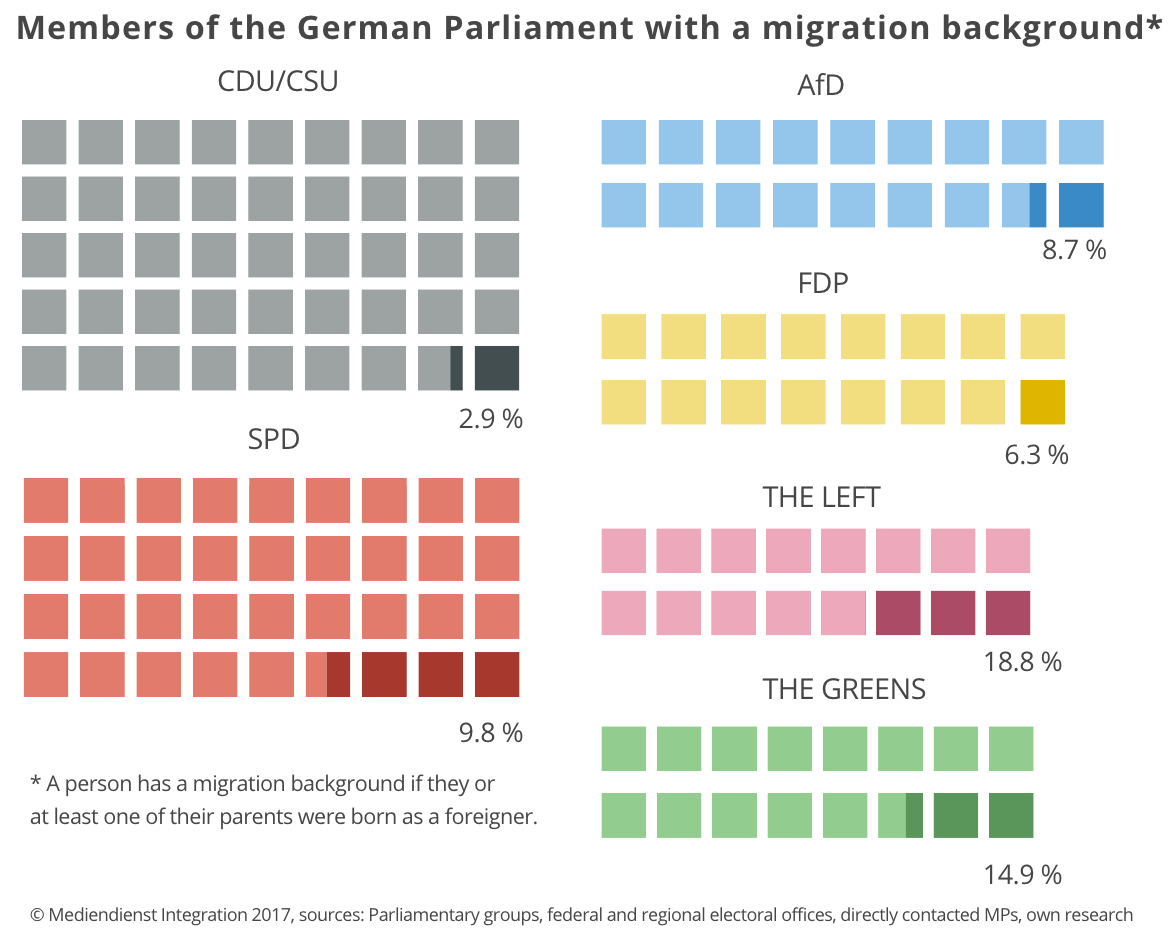At least 83 MPs of the newly elected German Parliament (Bundestag) have a so-called immigration background ("Migrationshintergrund"). These are the findings of research by MEDIENDIENST INTEGRATION.
With 735 seats in the incoming parliament this autumn, MPs with a migration background will occupy 11.3 percent. This compares to 26 per cent of the overall population in Germany with an immigration background.
Key findings (thefull report is in German is available here):
-
The Left (Die Linke) has the highest proportion of MPs with an immigration background: 28.2 per cent . They are the only party where the proportion of MPs with immigration history exceeds that of the overall population.
-
The SPD (Social Democratic Party) has 17 per cent of MPs with an immigration background. This figure has significantly gone up from 9.8 per cent since the national elections in 2017
-
The Greens (Die Grünen) have had a slight decrease of migrant MPs, from 14.9 per cent in 2017 to now 14.4 per cent .
-
The FDP (Liberal Democratic Party) will send 5.4 per cent migrant MPs to the new national parliament
-
CDU/CSU (Christian Democratic Party) is still the party with the smallest proportion of MPs with immigrant background, with now 4.1 per cen t (in 2017: 2.9 per cent).
The proportion of MPs with migration background has increased for the third time in a row since the national elections in 2013 (5.9 per cent) and 2017 (8 per cent). MPs with an immigration background are also younger than before: their average age has dropped from 49 to now 43 years.
Places of origin
Of the 83 MPs with a confirmed immigration background, 31 have ties to an EU member state. That constitutes 37 per cent of all MPs with an immigration background. Of these, six have ties to Italy and five to Poland. The number of MPs with roots in Turkey has increased from 14 in 2017 to now 18 across all parties. Six MPs in the newly elected national parliament have ties to Iran.
Research methodology
MEDIENDIENST INTEGRATION asked parliamentary groups, national head offices as well as state offices of all parties about their number of candidates with an immigration background. As a candidate's immigration background is not systematically recorded, several party press offices were either unwilling or unable to disclose these figures.
In addition, MEDIENDIENST evaluated the list of all ingoing MPs based on their names and publicly available information. Any indication of a migration background was collated against biographical information on websites, in speeches, interviews and media reports or checked in direct communication with the MPs' offices.
A person has an immigration background if they either immigrated to Germany themselves or have at least one parent that currently has or previously had an exclusively foreign citizenship. The research bears no indication whether the MPs may face discrimination. The list of names does claim to be exhaustive.
Article: Fabio Ghelli and Martha Otwinowski
Research: Sarah Spitz, Carsten Wolf, Marlene Rudloff, Martha Otwinowski, Antonia Hafner, Mehmet Ata, Christina Biel, Fabio Ghelli


